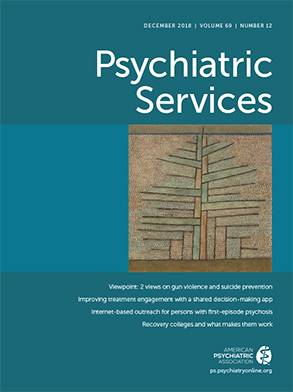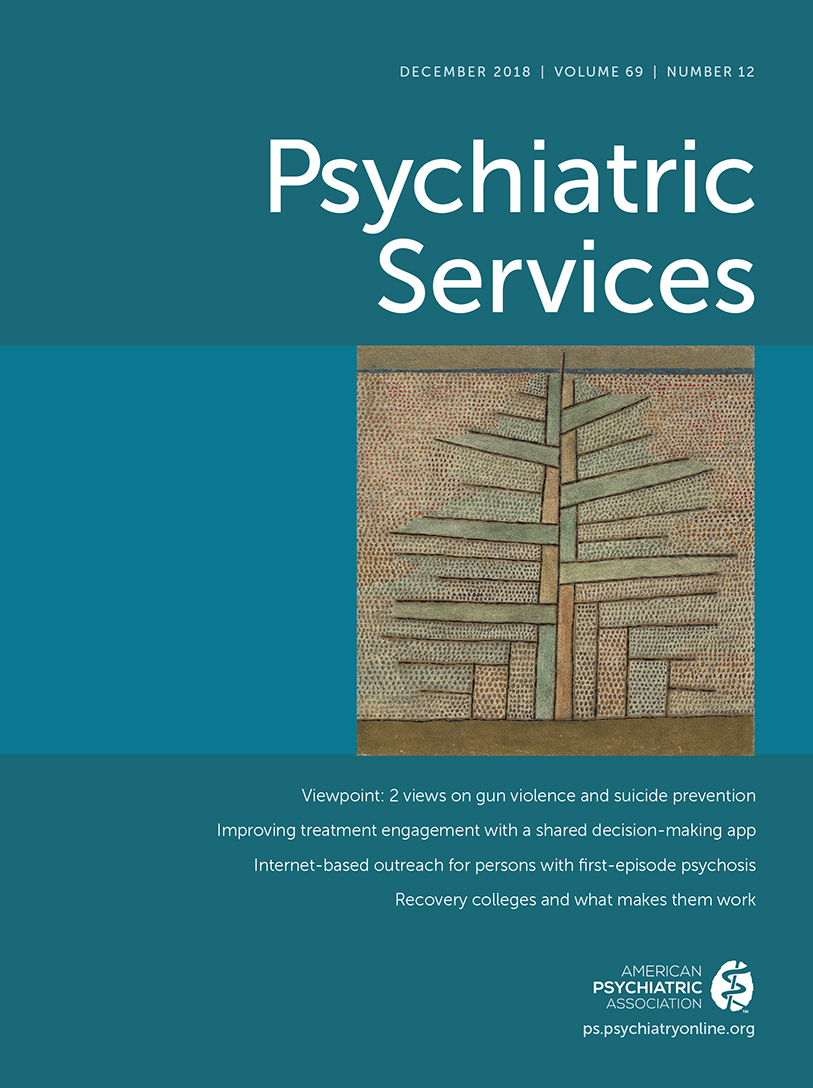Epidemiologic research consistently shows that approximately half of people with serious mental disorders are not engaged in the mental health system and that a large proportion of those who are in treatment do not take medications as prescribed. Because of previous contact with mental health services, many people strive to avoid further involvement, eschewing labels, treatment, and stigma. Sometimes symptoms cloud their thinking, but other reasons predominate. People may have experienced traumatic involuntary interventions that involved the police and possible tasering, handcuffing, or transport to a state hospital in a squad car. They may have experienced medications that produced little benefit but strong side effects. Many have suffered the effects of overmedication. Many express frustration at the mental health system’s overreliance on medications and lack of consistent, meaningful relationships and psychosocial services. Many perceive the mental health system as intertwined with the criminal justice system, child welfare system, public housing system, welfare system, or other systems of social control that undermine their autonomy. Long-term avoidance of mental health care may be even more common among people from minority backgrounds, who may have reason to mistrust the mental health system. According to Arthur Kleinman, M.D., mental health services are often viewed as not attending to what “really matters” in everyday life, such as housing, friends, and jobs.
Current approaches to treatment engagement can help. Assertive community treatment, shared decision making, and other efforts to establish trusting relationships often help people engage in effective treatments. In addition, approaches that address social determinants without treatment requirements, such as permanent supportive housing, peer support, and supported employment, often help people to develop trust and engage in other services.
CommonGround provides a brilliant synthesis because it honors shared decision making, peer support, and autonomy simultaneously. It also helps providers understand their patients better. Yet policy makers, clinicians, and researchers sometimes make the mistake of focusing narrowly on treatment adherence as the primary treatment goal. In fact, shared decision making and CommonGround often contravene adherence. Many patients are receiving too many medications, medications that are not producing benefits, or medications that are creating serious side effects. These patients need solutions, with adherence among the possibilities. The crux of shared decision making is to affirm the ethical principle of autonomy. What Finnerty and colleagues call a shared decision-making report from the CommonGround software is actually a health status report and merely the first step in shared decision making. Pat Deegan asserts that this initial report should go to the prescriber, who then should consider the information and collaborate with the patient to develop and document a shared decision—a process now termed “coproducing health outcomes.”
Medication adherence and treatment engagement are at best second-order correlates of meaningful goals such as better health, meaningful activities, and mutual friendships. Treatment is sometimes a mediating variable that enhances these primary goals, but large proportions of people do not respond to standard medications, or they experience distressing side effects or do not receive evidence-based psychosocial interventions. Shared decision making recognizes these realities. On the other hand, overreliance on medication adherence leads to coercive interventions that are antithetical to shared decision making, autonomy, and human rights. Overmedication and coercive medications cause many people to withdraw from mental health treatment and live on the margins of society. They sometimes experience rehospitalizations, receive multiple medications, and are discharged with orders to take medicines, avoid substance use, and stay out of trouble—but without a path to a meaningful life. Is it a surprise that they stop medications, self-medicate with alcohol and street drugs, and isolate themselves to avoid another involuntary commitment?
Policy makers may not understand that people who lack satisfying friendships and activities, good health, and hope for the future have little incentive to manage their illnesses. Instead, they may seek to “escape” into addiction, anonymous homelessness, and uncontrolled symptoms, even though these represent states of despair. Pat Deegan intends that CommonGround amplify the patient’s voice through shared decision making with the goal of helping people find their path to hope and recovery, not necessarily to medication adherence. Many people do recover. I meet them regularly in community mental health centers, housing programs, employment programs, and peer support programs. Yet the resources needed to help more people with mental disorders recover are inadequate, and society often resorts to criminalization, coercion, and paternalistic control.
History may not view the current mental health era kindly, but CommonGround is a step in the right direction.

